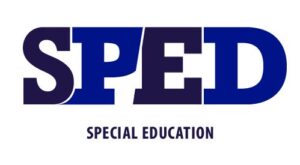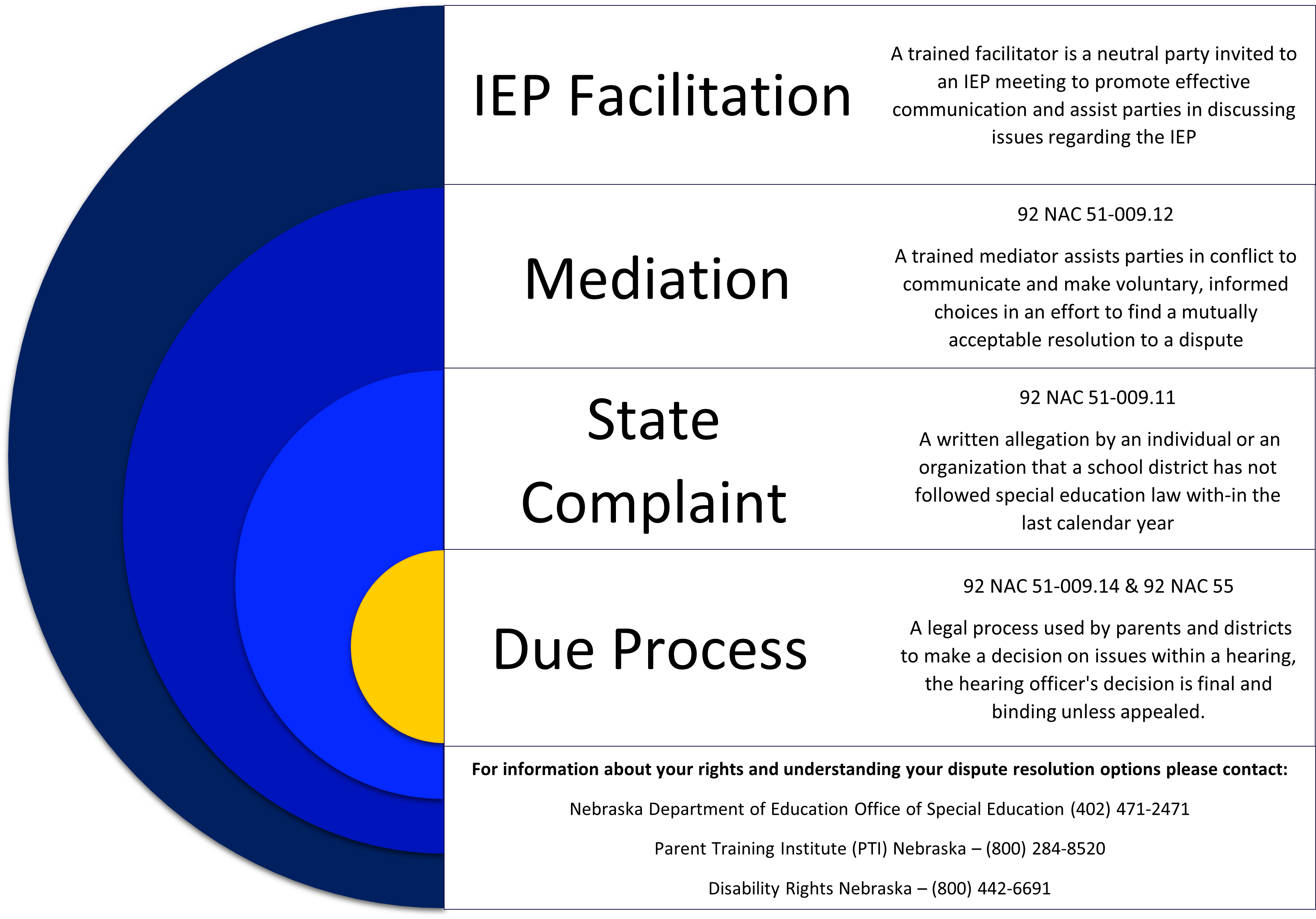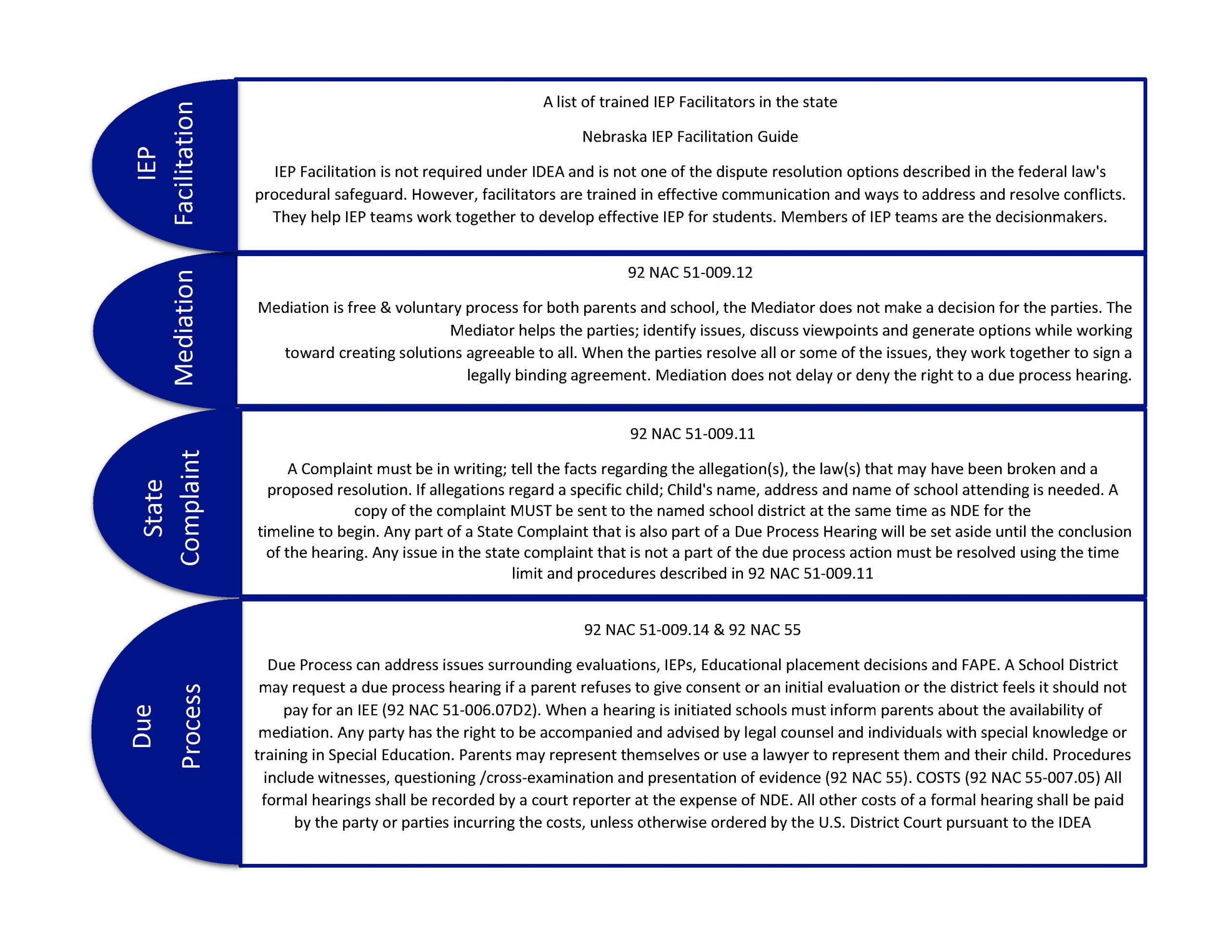Dispute Resolution
IEP Facilitation
A trained facilitator is a neutral party invited to an IEP meeting to promote effective communication and assist parties in discussing issues regarding the IEP
Mediation
92 NAC 51-009.12
A trained mediator assists parties in conflict to communicate and make voluntary, informed choices in an effort to find a mutually acceptable resolution to a dispute
State Complaint
92 NAC 51-009.11
A written allegation by an individual or an organization that a school district has not followed special education law with-in the last calendar year
Due Process
92 NAC 51-009.14 & 92 NAC 55
A legal process used by parents and districts to make a decision on issues within a hearing, the hearing officer’s decision is final and binding unless appealed.
NDE – Office of Special Education (402) 471-2471
Parent Training Institute Nebraska –(800) 284-8520
Disability Rights Nebraska –(800) 442-6691
IEP Facilitation
A list of trained IEP Facilitators in the state
Nebraska IEP Facilitation Guide
IEP Facilitation is not required under IDEA and is not one of the dispute resolution options described in the federal law’s procedural safeguard. However, facilitators have trained in effective communication and ways to address and resolve conflicts. They help IEP teams work together to develop effective IEP for students. Members of IEP teams are the decision-makers.
Mediation
92 NAC 51-009.12
Mediation is a free & voluntary process for both parents and school, the Mediator does not make a decision for the parties. The Mediator helps the parties; identify issues, discuss viewpoints and generate options while working toward creating solutions agreeable to all. When the parties resolve all or some of the issues, they work together to sign a legally binding agreement. Mediation does not delay or deny the right to a due process hearing.
State Complaint
92 NAC 51-009.11
A Complaint must be in writing; tell the facts regarding the allegation(s), the law(s) that may have been broken, and a proposed resolution. If allegations regard a specific child; the Child’s name, address, and name of school attending are needed. A copy of the complaint MUST be sent to the named school district at the same time as for the timeline to begin. Any part of a State Complaint that is also part of a Due Process Hearing will be set aside until the conclusion of the hearing. Any issue in the state complaint that is not a part of the due process action must be resolved using the time limit and procedures described in 92 NAC 51-009.11
Due Process
92 NAC 51-009.14 & 92 NAC 55
Due Process can address issues surrounding evaluations, IEPs, Educational placement decisions, and FAPE. A School District may request a due process hearing if a parent refuses to give consent or an initial evaluation or the district feels it should not pay for an IEE (92 NAC 51-006.07D2). When a hearing is initiated schools must inform parents about the availability of mediation. Any party has the right to be accompanied and advised by legal counsel and individuals with special knowledge or training in Special Education. Parents may represent themselves or use a lawyer to represent them and their child. Procedures include witnesses, questioning /cross-examination, and presentation of evidence (92 NAC 55). COSTS (92 NAC 55-007.05) All formal hearings shall be recorded by a court reporter at the expense of NDE. All other costs of a formal hearing shall be paid by the party or parties incurring the costs unless otherwise ordered by the U.S. District Court pursuant to the IDEA







